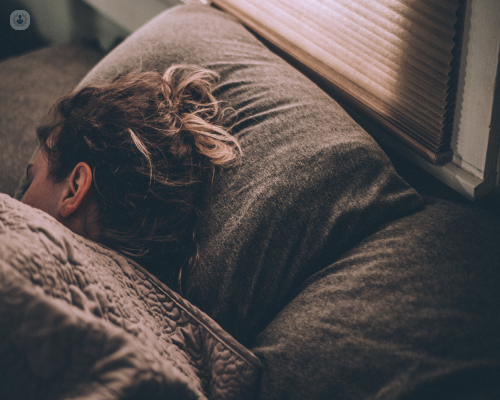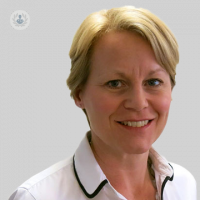Obstructive sleep apnoea
Written by:Sleep apnoea can be a hindrance to your life when you’re awake, too. Dr Grace Robinson outlines some of the effects of this conditional, as well as treatment options.

What is obstructive sleep apnoea?
Obstructive sleep apnoea (OSA) is like bad snoring. It occurs when the upper airway becomes relaxed and floppy due to reduced muscle tension as we drift off to sleep.
Snoring occurs because of turbulent airflow through the narrowed airway which can be contributed to by nasal obstruction, facial features, fat deposition around the neck, alcohol and cigarette smoking.
In obstructive sleep apnoea, the airway actually collapses down leading to breath holding (apnoea). This is where the noise of snoring can sometimes disappear and no breathing sounds are heard.
When the individual does not breathe in, the oxygen level in the blood drops, which causes a reflex in the brain to wake the brain up. Most individuals are unaware of being woken overnight, but if the brain is woken multiple times overnight this can lead to daytime sleepiness/tiredness.
One of the assessments of OSA is called the Epworth sleepiness score (which your doctor will ask you to complete).
Is sleep apnoea dangerous?
Sleep apnoea in isolation is not life-threatening as individuals will always resume breathing overnight. The main issue is that the sleepiness it causes can make normal daytime functioning and working difficult.
What are the treatment options?
Treatment of sleep apnoea depends on its severity:
- Conservative measures are always recommended first – weight loss, stopping consumption of alcohol and quitting smoking, and using nasal sprays to clear any nasal obstruction;
- Mandibular or jaw advancement devices are recommended for snoring or mild sleep apnoea – these are gadgets worn over the teeth overnight (often a bit like rugby gum shield). There are lots of different designs but they all act to bring the bottom jaw forward. The tongue is attached to the bottom jaw, so bringing the bottom jaw forward overnight helps to prevent the tongue flapping back down the airway which contributes to airway obstruction;
- Severe sleep apnoea is treated by nasal continuous positive airways pressure treatment (CPAP). This involves a plastic mask over the nose or face with tubing attached to the continuous positive airways pressure machine. This machine gently blows air down the breathing tube/ airway overnight to keep it open, resolving the episodes of breath-holding or apnoea. It is a very effective treatment and most people rely on it throughout the rest of their lives.
Are there any driving implications of obstructive sleep apnoea?
There are DVLA driving regulations and these apply to any conditions causing hypersomnolence. In obstructive sleep apnoea, the DVLA recommends that driving should cease and until adequately treated – this depends on how sleepy the individual is and the severity of obstructive sleep apnoea.
Dr Grace Robinson is an expert in treating respiratory issues, based in Reading. Visit her Top Doctors profile to request an appointment with her.


